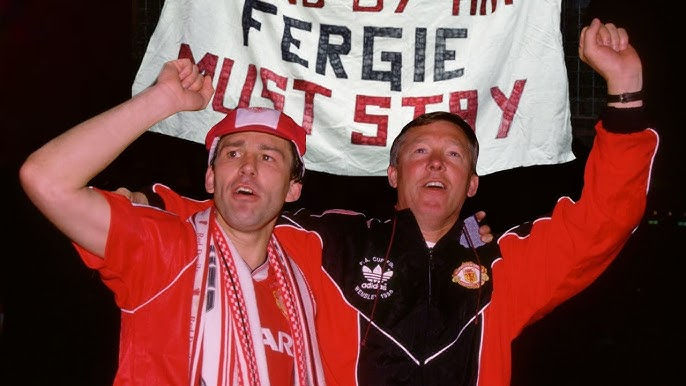The Magic of the Cup: Diminished, Yet Persisting
- Steve Basing
- Mar 31
- 3 min read
Getty Images
Once again, this weekend, the Premier League took a backseat, with the FA Cup claiming the spotlight.
For those not raised with its traditions, it can be hard to grasp the FA Cup's unique place in English football culture and the nostalgic yearnings it evokes in every true fan.
It’s not just the longevity of the world’s oldest football competition, held annually since 1872, that elevates its status—though that certainly plays a part. What truly makes the FA Cup unique is that every club, from the minnows to the giants, has an FA Cup story. It was a brief moment when they were the biggest and most captivating story in a nation obsessed with football.

By throwing together part-timers and global superstars, the Cup, in an era dominated by millionaire players hailing from every corner of the globe—whose loyalties are often dictated more by agent whims than by any deep-rooted passion—embodies football’s working-class roots more than anything else. Nothing unites the British public quite like a classic David vs. Goliath FA Cup tie.
For all its changes over the years, it still holds a special place today. But the sad truth is that the FA Cup’s shine has faded, overshadowed by the behemoths of the Premier League and Champions League. The magic, while still there, no longer gleams as brightly.
In footballing terms, the FA Cup is no longer the crowning achievement that can save an underperforming manager. Once upon a time, it was unthinkable for a chairman to sack a cup-winning manager—ask Sir Alex Ferguson, widely believed to have been saved from the Manchester United chopping block by his 1990 FA Cup triumph. Fast forward 26 years, and Louis Van Gaal, despite winning the 2016 Cup final, found that the same achievement was not enough to save his job at the same club.
Culturally, too, the competition’s significance has diminished. Changes in kick-off times, the removal of replays, and the prioritization of league and European games have all contributed to a growing sense of apathy surrounding the Cup.
Yet, despite all of this, the magic of the FA Cup refuses to be completely extinguished, and nothing encapsulated this better than this weekend’s quarter-finals.
The strange nature of this season, which has seen many of the traditional powerhouses of English football stutter, has allowed some lesser names to progress to the later stages of the FA Cup. And this refreshing change has served as a powerful reminder of the enduring spirit of the FA Cup.
Of the eight teams remaining in the competition at the start of the weekend, four have never won the FA Cup. Of the four that have, only Manchester City has won it in this century. Preston (1938), Aston Villa (1957), and Nottingham Forest (1959) all have a generation of fans who have never seen their team lift the famous trophy.
For the supporters of Crystal Palace, Aston Villa, and Nottingham Forest, who will be heading to Wembley for the semi-finals, thoughts of league position and financial rewards will be far from their minds. They won’t be focused on squad rotation or prioritizing top-four finishes and Champions League football. Instead, they’ll be dreaming of watching their heroes ascend those hallowed Wembley steps, lifting a trophy that, for many, still epitomizes English football at its finest.
As long as that passion endures, the magic of the FA Cup will persist.




![[Original size] DJ's Sports Show.png](https://static.wixstatic.com/media/75856f_7f4ffe7f83c14d209a701ef21c02c17d~mv2.png/v1/fill/w_120,h_120,al_c,q_85,usm_0.66_1.00_0.01,enc_avif,quality_auto/%5BOriginal%20size%5D%20DJ's%20Sports%20Show.png)




Comentários